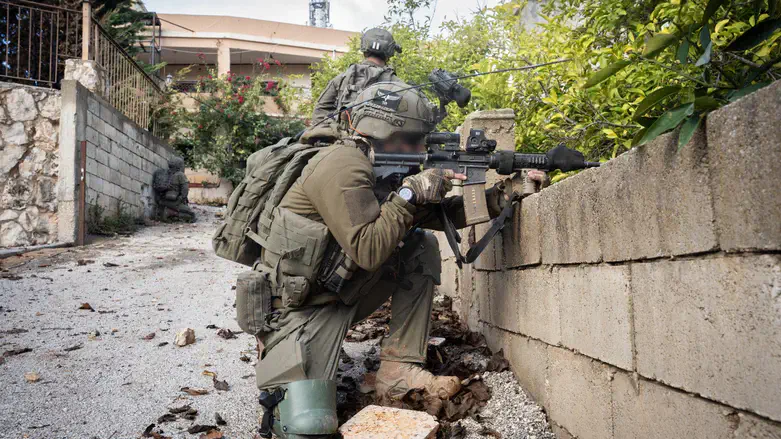
IDF forces on Wednesday morning responded to a ceasefire violation by the Hezbollah terror group.
During the incident, Hezbollah terrorists neared the Lebanese village of Kfarkela, which overlooks the northern Israeli town of Metula. Spotting the terrorists, the Israeli forces fired warning shots.
The incident follows a ceasefire deal between Israel and Lebanon - to which the Hezbollah terror group is not a signatory - which promises that south of the Litani River, there will be only Lebanese military forces, and not military forces of Hezbollah or any other terror group.
Metula Council leader David Azoulay responded: "A few minutes ago, eight vehicles and a motorcycle belonging to Hezbollah arrived at Kfarkela, at its ruins. An IDF forces fired a warning shot to distance them. Nothing at all has changed since October 7."
The IDF confirmed the incident, reporting: "Following the directive of the political echelon, the ceasefire agreement in Lebanon took effect at 04:00 today (Wednesday), and the IDF has been operating accordingly."
"IDF troops are stationed at their positions in southern Lebanon.
"Over the past hour, the IDF identified a vehicle with several suspects in a zone prohibited for movement in Lebanese territory. IDF troops fired to prevent them from advancing, and the suspects left the area.
"The IAF remains ready to act across Lebanese territory and the IDF Aerial Defense Array is also in a high state of defensive readiness."
"There are currently no changes to the Home Front Command guidelines," the IDF added. "The IDF will operate against anyone who attempts to breach the ceasefire agreement and will continue to protect the citizens of Israel."
The ceasefire agreement between Israel and Lebanon went into effect at 4:00 a.m. on Wednesday morning, hours after the Israeli Cabinet on Tuesday evening approved the ceasefire deal, which was brokered by the US, by a majority of 10 to 1.
The agreement stipulates that Hezbollah and all other armed groups in Lebanon will not carry out any offensive action against Israel, and in return Israel will not carry out any offensive military action against targets in Lebanon, including by land, air and sea. However, Israel has the right to respond militarily to any breach of the ceasefire.
In addition, Israel and Lebanon will recognize the importance of UN Security Council Resolution 1701, even though, "these obligations do not negate Israel’s or Lebanon’s inherent right to self-defense," the agreement stated.
Under the agreement, Israel will gradually withdraw its forces to south of the Blue Line over a period of up to 60 days. The United States will simultaneously promote indirect negotiations between Israel and Lebanon in order to reach a recognized land border.
Prior to the start of the ceasefire, the IAF conducted intelligence-based strikes on dozens of Hezbollah command centers, launchers, weapons storage facilities, and terrorist infrastructure sites in Beirut, Tyre, and Nabatieh. The targets included a military structure used by Hezbollah's coast-to-sea missile unit in Beirut. Many of the targets belonged to Hezbollah’s ‘Aziz’ Unit, ‘Bader’ Unit, and the Radwan Forces.
Prior to the ceasefire, the IAF also conducted intelligence-based strikes on several smuggling routes between Syria and Lebanon, which were used by Hezbollah to smuggle weaponry. These strikes were conducted to prevent Hezbollah's ability to re-arm.
Prior to the strikes, steps were taken to mitigate the possibility of harming civilians, including issuing evacuation warnings on various platforms for civilians in the area.
"The IDF will remain vigilant and ready to defend the State of Israel against any threat," the IDF stressed.
